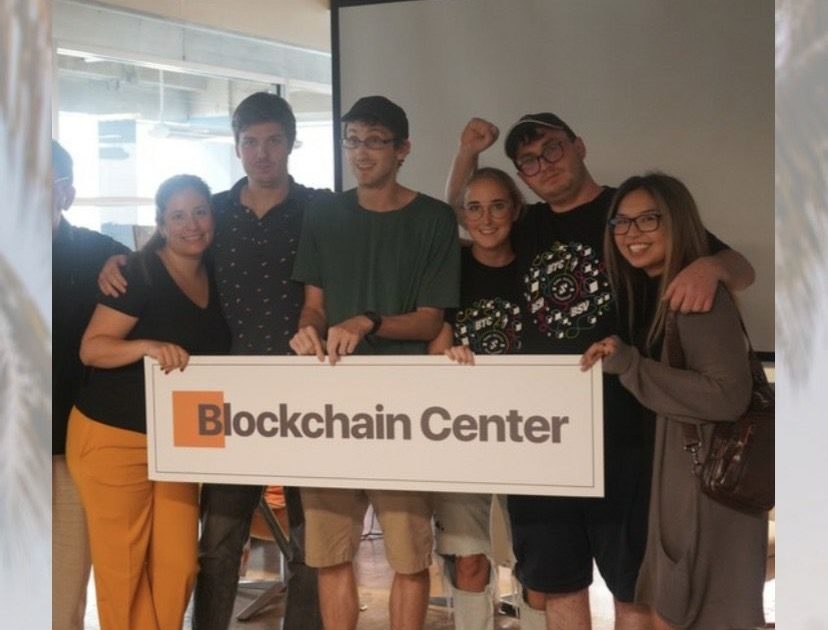Text-My-Bits Wins Miami Hackathon Now Send Bitcoin Through SMS Text
February 17, 2020 by Art Rozenbaum
The Miami Bitcoin Hackathon is a long standing tradition during Miami Blockchain Week. This year it was hosted at the Bitcoin Center – Miami for the first time. This year’s winning team was particularly interesting with the name of the project is Text-My-Bits. Leveraging the RSK network, the goal they set out to achieve was to create a way for people who do not have internet access to be able to transmit Bitcoin through SMS text message.
Also Read: Bitcoin Value Going Lateral Across the Board Between $8000 and $10000
The team consisted of Tal Zisckind, John May, Kate Stapleton, Antoine DeVuyst. They worked together over the course of 24 hours to create and demonstrate a functional prototype of their system.
The target audience for this solution are developing and underserved markets. People within these areas are often times completely unbanked. They also have limited internet access, or sometimes no internet at all. However, cellular phone service and text messaging is widespread. Currently, this market is being served by M-pesa. M-pesa is a mobile phone based money transfer system that is offered by the telecom companies, Safaricom and Vodacom. However, they are not available in all regions. In places where M-pesa is not available, the unbanked masses must resort to using paper cash or even barter.
This project was created to address the issues I faced while working in the non profit world. Even in 2019, sending money from the first to the third world could be nearly impossible, as most remote field offices have little or no access to traditional banking systems, and the majority of their beneficiaries have no internet access. That, coupled with unstable political and social conditions made global payment remittance solutions a nightmare. The one thing that everyone in the communities we worked in had, were feature phones- offline phone that are essentially what we would think of as flip phones. And to send money to each other they used offline, bankless mobile money solutions like M-pesa in Kenya….Our goal is to help onboard the 52% of the population without internet and the 1.7 billion unbanked citizens into the global crypto economy.
— Kate Stapleton
What sets Text-My-Bits Apart?
While there are existing crypto systems that aim to serve the ubanked, the problem they run into is that the unbanked are also usually not connected to the internet. Existing crypto solutions require that money be sent to a field office, which then converts to local fiat and distributes it to the recipients. Usually in the form of paper cash.
Text-My-Bits is designed to work differently. There is still a field office, however it fills a different role. Text-My-Bits allows users to go to their field office once, only to register their phone. They then receive a text message with a One Time Password (OTP) which authenticates them. After receiving their password, they text “Receive” to the server’s phone number along with the OTP, and the funds are sent directly to their phone via SMS. Users can also send funds to others. They do this by texting “I want to send __ satoshis”, at which point they are given an OTP that the receiving party can then text the server to receive the funds. Users can also query their balance by texting “Balance”. This allows donations to be made from anywhere in the world to underserved locations, such as Uganda. The money can then be distributed directly to the recipients without ever having to be converted to fiat. All while remaining completely traceable and censorship resistant.
What’s Under the Hood?
Text-My-Bits utilizes the RSK sidechain which is pegged directly to the Bitcoin network. It allows developers to write smart contracts for Bitcoin. Smart Bitcoin (or RBTC used in RSK smart contracts) is pegged 1:1 to Bitcoin. The smart contract acts as the logic, and when combined with the Twilio API, allows the system to run offline.
RSK implements smart contracts using the Ethereum Virtual Machine. Bitcoin can be directly converted to and from smart bitcoin called RBTC. RBTC is then used in RSK smart contracts just as ETH is in Ethereum network smart contracts.
Backend servers handle the text message service that allows for RBTC to be transferred. The server was written in node javascript using the express framework and utilizing the Twilio API for text messaging services. The RSK smart contracts are written in solidity.
From the phone number of each user, a unique identity is generated using hash functions. This identity corresponds to an account on a smart contract. The Text-My-Bits service has its own Twilio generated phone number. When users send messages to this number, the server reads these messages and sends a corresponding transaction on the smart contract through the Twilio API.
For example if a user sends a text message of “I want to send 100 Satoshis to 2158675309” our server can read the senders phone number, the satoshi amount and the corresponding recipient number. The server can then trigger the corresponding transfer transaction in the smart contract through an authenticated oracle address.
— John May
Plans for the Future
Text-My-Bits already has a version running live on the RSK mainnet. Future development will focus on making it a scalable and secure system that can be utilized by millions of users.
Do you think sending Bitcoin over SMS text message is a viable option for the unbanked and other underserved markets? Share your thoughts in the comments below.
Image Source: Bitsonline.com, Pixabay






